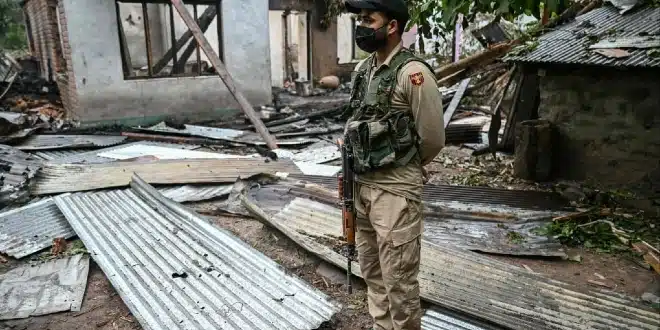Tensions between India and Pakistan have escalated sharply following a series of drone and missile attacks targeting strategic locations across northern India. The Indian Armed Forces have responded with heightened security measures and a series of counter-operations aimed at neutralizing perceived threats.
Drone Attacks and Airspace Security
On May 9, multiple drone incursions were reported over key installations, including Srinagar Airport and the Awantipora airbase. Indian air defense systems successfully intercepted and destroyed six to eight drones in the regions of Awantipora, Srinagar, and Baramulla. These incidents prompted the suspension of civilian flights at Srinagar Airport, a measure that has been in place since May 7. Additionally, Pakistani drones were sighted in areas such as Jammu, Samba, and Pathankot, leading to increased vigilance along the border regions.
In response to the heightened threat level, the Indian government has extended the closure of 24 airports across northern India until May 15. This precautionary measure affects airports in cities including Jammu, Srinagar, Leh, Chandigarh, Amritsar, and others, aiming to ensure civilian safety amid ongoing military operations.
Operation Sindoor: India’s Strategic Response
In a decisive move, the Indian Armed Forces launched Operation Sindoor in the early hours of May 7. This operation targeted nine locations identified as terrorist camps and launchpads in Pakistan and Pakistan-occupied Kashmir. The strikes were carried out using precision-guided munitions, including SCALP missiles and AASM Hammer bombs deployed from Rafale fighter jets. The operation lasted approximately 23 minutes and aimed to dismantle infrastructure associated with groups such as Lashkar-e-Taiba and Jaish-e-Mohammed.
Indian officials described the strikes as measured and proportionate, emphasizing that the targets were non-military and focused solely on terrorist infrastructure. The operation was presented as a response to a terrorist attack in Pahalgam on April 22, which resulted in the deaths of 26 civilians.
Regional Impact and International Reactions
The recent hostilities have led to significant disruptions in civilian life across the affected regions. Intermittent explosions have been reported in Jammu, and authorities have urged residents to remain indoors. The suspension of flights and closure of educational institutions have further underscored the severity of the situation.
Internationally, there is growing concern over the escalating conflict between the two nuclear-armed neighbors. Calls for de-escalation have been made by various global leaders and organizations, emphasizing the need for diplomatic engagement to prevent further deterioration of regional stability.


